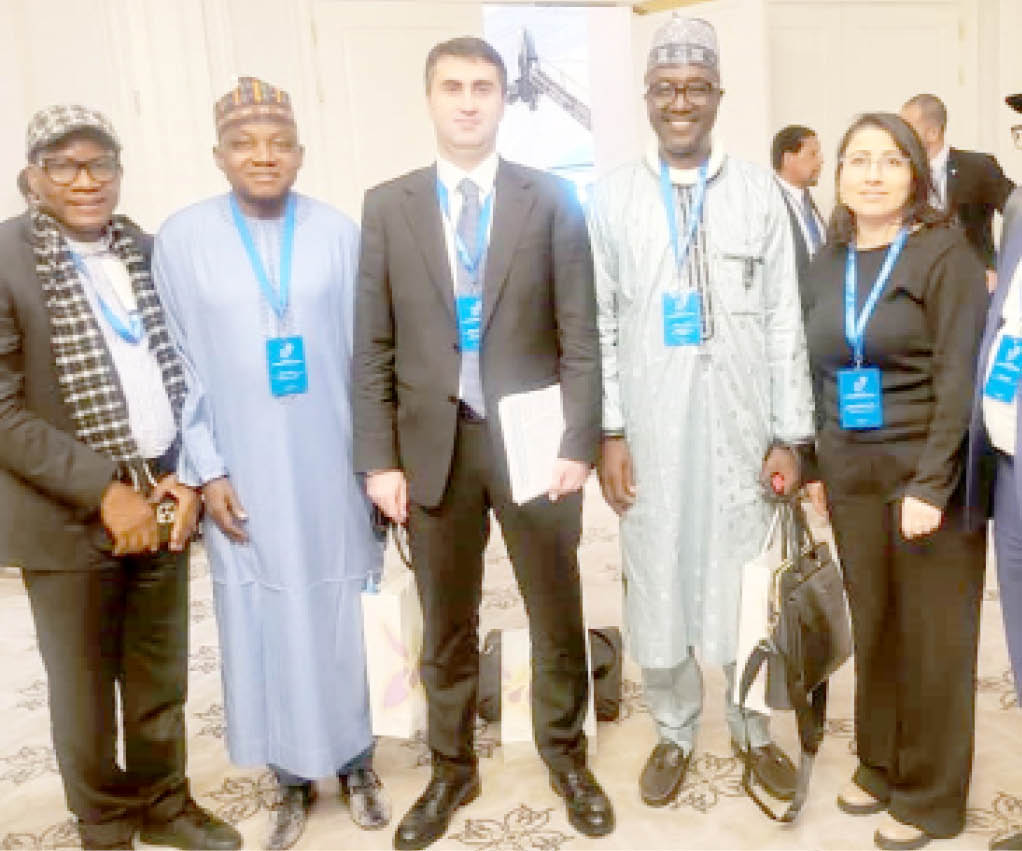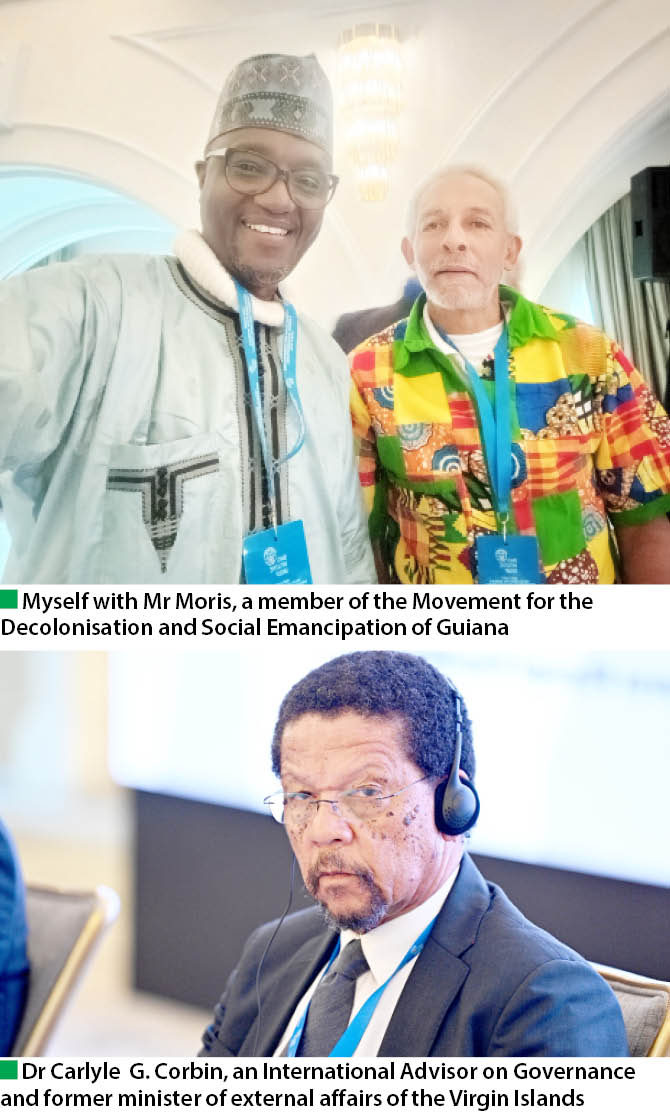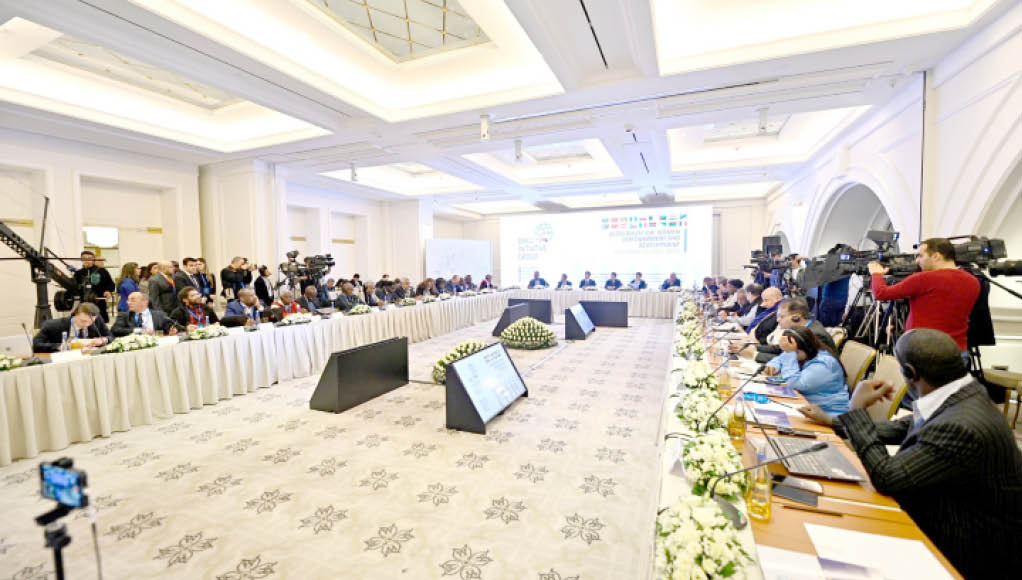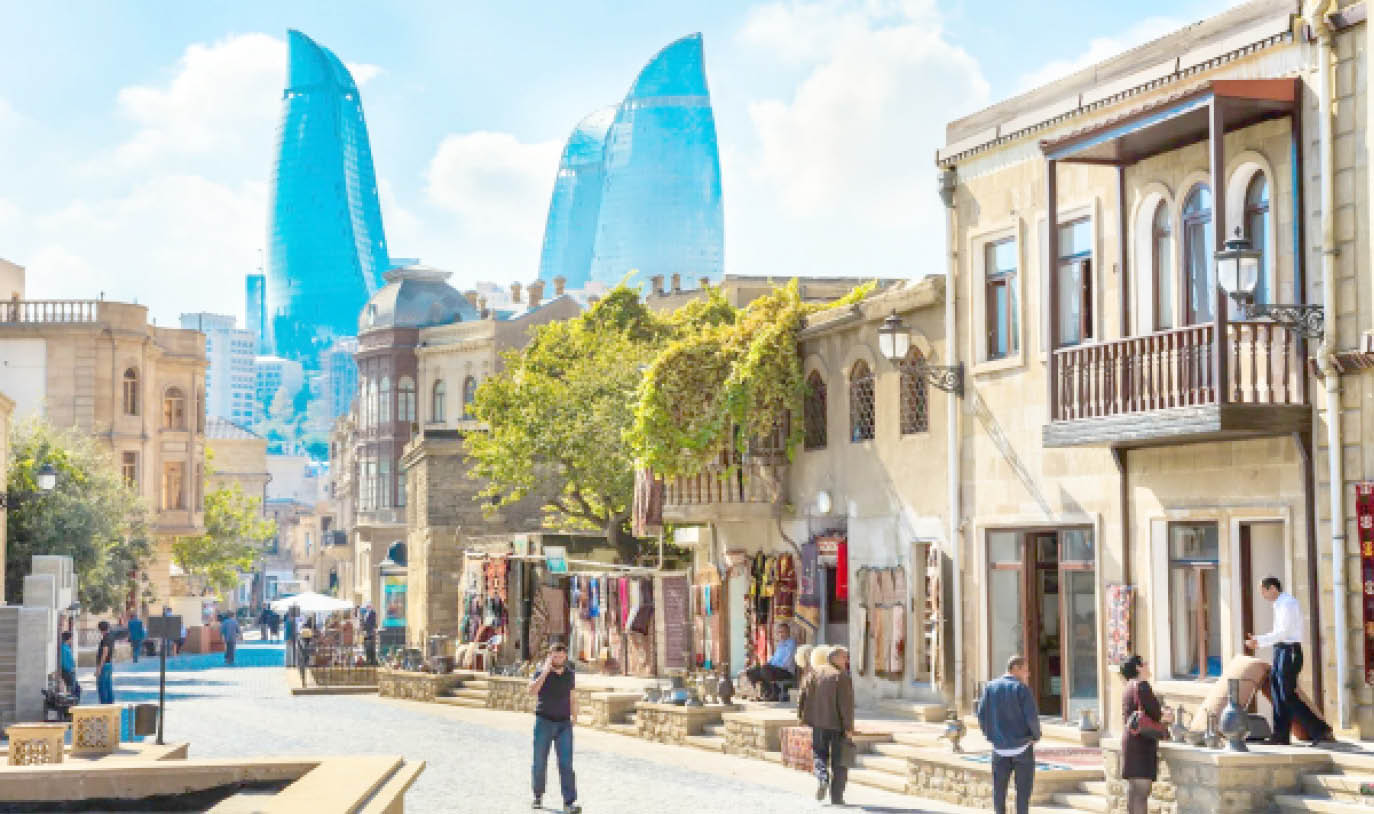It was tough and unpleasant for colonial powers like France, United Kingdom (UK) and the United States of America (USA), among others, when aggrieved people suffering under the shackles of colonialism descended on them asking for freedom.
Territories under the firm grip of colonialism include but not limited to New Caledonia, United States Virgin Islands Montserrat, Saint Helena, Anguilla, British Virgin Islands, Gibraltar, Cayman Islands, Falkland Islands (Malvinas), Turks and Caicos Islands, French Polynesia, American Samoa, Guam, Pitcairn and Tokelau.
The anger of the overseas territories was visible, and their representatives were unapologetic in venting their anger.
They called out the colonial masters for controlling their economies and way of life, saying enough is enough. And the message was loud and clear considering the solidarity they got across legacy and emerging media.
Is Nigeria’s democracy under a threat?
Kyari, Kerry, Moynihan, others discuss climate issues at COP28 in UAE
The participants expressed their grievances in Baku, the capital of Azerbaijan, a country in eastern Transcaucasia, bounded on the north by Russia, on the east by the Caspian Sea, on the south by Iran, on the west by Armenia, and on the northwest by Georgia.
Sponsored by the Baku Initiative Group (BIG), the conference was tagged ‘Decolonisation: Empowerment and Development of Women.’
Azerbaijan, a former member of the defunct Union of Soviet Socialists Republic (USSR) is leading the fight, and to a greater extent, shouldering the pains of the colonies.
While many people, especially in this part of the world, have forgotten about colonial domination considering the gale of independence African countries got in the 1960s, the monster of domination by the super powers still persists in many parts of the world.

However, Azerbaijan’s renewed campaign is not by accident; it is strategic considering its leadership of the Non-Aligned Movement (NAM).
The NAM is a forum of 120 countries that are not formally aligned with or against any major power bloc. It was founded with the view to advancing interests of developing countries in the context of Cold War confrontation. After the United Nations, it is the largest grouping of states worldwide.
In 1961, drawing on the principles agreed at the Bandung Conference of 1955, the NAM was formally established in Belgrade, Yugoslavia through an initiative of the then Yugoslav President Josip Broz Tito, Indian Prime Minister Jawaharlal Nehru, Egyptian President Gamal Abdel Nasser, Ghanaian President Kwame Nkrumah, and Indonesian President Sukarno.
Until recently, the group somehow “went to sleep” after covering a lot of grounds in achieving its targeted goals; but sadly, the development also subdued the voices of remnants of colonised territories.
From the time Azerbaijan took over the chairmanship of the NAM, a lot has been achieved, once again in bringing to the fore, some of the purpose and principles of the movement like respect for fundamental human rights, and for the purposes and principles of the Charter of the United Nations; respect for the sovereignty and territorial integrity of all nations; recognition of the equality of all races and of the equality of all nations, large and small; abstention from intervention or interference into the internal affairs of another country.
As it rounds off its chairmanship at the end of 2023, and in preparation to hand over the baton to Uganda, Azerbaijan is strongly trudging towards ensuring that more colonised territories get their independence.
At the latest meeting held on November 21, no fewer than 40 participants from 18 countries converged, some in solidarity with those under the firm grip of the imperialists.
Representatives were drawn from France, USA, Turkey, Russia, Algeria, Senegal, Nigeria, Tanzania, Uganda, Kenya, Comoros, India and French colonies like New Caledonia, Martinique, French Polynesia, Guadeloupe, French Guiana and Corsica.
From Nigeria, it was my humble self; the Senior Special Assistant to former President Muhammadu Buhari, Malam Garba Shehu, and the Deputy Managing Director, ThisDay Newspaper Group and former member of the National Human Rights Commission Governing Council, Kayode Komolafe that attended the event.
The meeting in Baku was not the first, and even though a daunting task, if what has been achieved in the last few months in terms of pressure is anything to go by, many suppressed societies would have a sigh of relief sooner than later.
Undoubtedly, Azerbaijan has shown all the commitment and appears undeterred by what the colonialists might feel in the latest renewed struggle against colonialism.
The latest conference was meant to once again reject, and going forward, push harder to eliminate colonialism in its entire ramification.
It also gave special attention to the plight of women in territories still under colonial rule, with a view to liberating them.
Those who came from colonised territories gave heart-rending stories about their plights.
For some of us, it was particularly incredible to discover that colonialism persists, and that certain people are still grappling with the menace in the 21st century. This is despite the fact that our countries are still grappling with post-colonial hangovers.
In a statement ahead of the event, the organisers observed that: “Regrettably, countries like France continue to perpetuate colonialism, a remnant of the slavery era, by occupying 13 overseas territories. Despite certain resolutions of international organisations and the long-standing demands of peoples fighting for their freedom and independence, official Paris persists in its neo-colonialism policy.

“Moreover, France’s ongoing colonial policy not only covers the overseas territories but also extends to Africa, South East Asia, Pacific Ocean, Atlantic and Indian Ocean regions, and Latin America. France continues to exploit these regions’ resources, manipulate their political processes and maintain military bases, thus hindering their true independence and development. The French armed forces have perpetrated the numerous crimes against humanity and have subjected hundreds of thousands of innocent civilians to genocide due to their ethnic and religious affiliation. Millions of people were victims of the French slave policy.
“Representatives of Overseas Territories, who have been denied the opportunity to voice their demands for freedom and independence by France for a long time, have found an appropriate platform at the instance of Baku Initiative Group to assert their basic rights and make their voices heard to the global community.”
Unbelievable but true
Many people may not likely believe that colonialism still exists in all parts of the world, but this is true, even as the voices of those being subjugated are rarely being heard, for obvious reasons.
In Africa, for instance, millions of people born in the 1970s and the years after only read in books and other literatures about colonial domination.
Of course, what has remained in the front burner of discussions is whether post- independence leaders have fully utilised the sacrifices made by founding fathers of nations in this part of the world.
This is besides issues around neo-colonialism, which some pundits believe is being aided and abated by some vested interests.
In his address at the conference, Azerbaijani President Ilham Aliyev, represented by Hikmat Hajiyev, who is his assistant and Head of the Foreign Policy Department of the Presidential Administration, said, “As chair of the Non-Aligned Movement, the Republic of Azerbaijan has always attached great importance to issues relevant to humanity and carried out effective work towards eliminating the injustices faced by peoples worldwide. In this regard, our time demands to bring the issues of women and colonialism together and amplify the role of women in the decolonisation process. Regrettably, in the 21st century, women are still being subjected to slavery and exploitation in colonies, meaning that they are deprived of fundamental human rights.
“Azerbaijan is very concerned about the continuation of colonialism, especially the flagrant violation of the rights of women and children in colonies. France, which currently controls 13 overseas territories as its colonies and interferes in the internal affairs of its former colonies located on different continents worldwide, continues its neo-colonialism policy despite the many years of demands from international organisations and peoples fighting for independence.
“Centuries have passed, but the new shameful methods of French colonialism continue to this day because policies and mindsets have not changed. The peoples of the overseas territories gathered at this conference have been fighting for independence for many years.

“Unable to abandon the history of colonialism, France does not respect the freedom, aspirations and rights of the peoples living in overseas communities and territories outside Europe, in the Pacific, Indian and Atlantic oceans, and works hard to undermine the realisation of those aspirations.
“Also, it continues to make gross interventions in the internal affairs of its former colonies on the African continent, which is an obstacle to achieving stability. The views expressed by politicians from overseas regions about French colonialism are truly terrifying.
“We observe that racism and Islamophobia are growing in parallel with the tendencies of neocolonialism in France. Having to deal with such disturbing and dangerous trends at home, French authorities are trying to lecture other countries.
“The recent expulsion of French troops from Mali, Niger and Burkina Faso showed yet again that its ruthless neo-colonialist policies in Africa are doomed to failure.
“France, which should be ashamed of its history of colonialism rich in bloody crimes, instead of apologising for the atrocities it has committed, talks about fictitious ethnic cleansing in other countries.
“Azerbaijan’s chairmanship of the Non-Aligned Movement is coming to an end. The Baku Initiative Group has already officially started its activities. The fight against neo-colonialism will continue. We will cooperate in the fight against colonialism in different parts of the world,” he said.
The Baku group was established on July 6, 2023, and it aims at total elimination of colonialism.
Our correspondent gathered that the latest gathering was the fourth international conference against colonialism organised so far.
The participants had during their presentations given kudos to the formation of the Baku Initiative Group, which has so far reignited conversation around the impediments of freedom for oppressed people for them determine their future as independent people.
One of them, the general secretary of the People’s Union for the Liberation of Guadeloupe, Jean-Jacob Bicep said, “The Baku Initiative Group will become an important platform for undertaking our future activities. That is why the opening of the office of the Baku Initiative Group marks a pivotal moment.
“I think this group will provide support to our future activities.”
Guadeloupe, an archipelago of more than 12 islands, as well as islets and rocks, is situated where the northeastern Caribbean Sea meets the western Atlantic Ocean in North America.
It is a French overseas region that has a population 395,700 (2016) and its capital is in Basse-Terre.
Mr Moris, a member of the Movement for the Decolonisation and Social Emancipation, said their prayer was for the re-inscription of Guiana on the list of non-self-governing territories.
French Guiana is an overseas department of France on the northeast coast of South America, composed mainly of tropical rainforest.
Dr Carlyle G. Corbin, an international advisor on governance and former minister of external affairs of the Virgin Islands, said the crave for independence by occupied territories was a legitimate demand.
Previous events were held in Baku on July 6, 2023, and at the UN headquarters in New York on September 22.

 Join Daily Trust WhatsApp Community For Quick Access To News and Happenings Around You.
Join Daily Trust WhatsApp Community For Quick Access To News and Happenings Around You.


